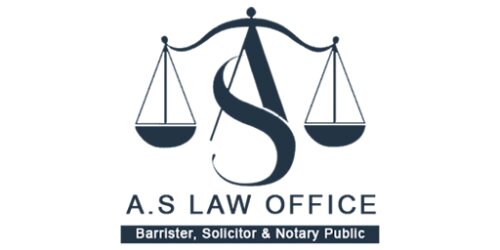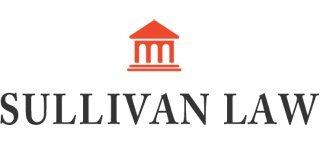Best Commercial Real Estate Lawyers in Winnipeg
Share your needs with us, get contacted by law firms.
Free. Takes 2 min.
Free Guide to Hiring a Real Estate Lawyer
List of the best lawyers in Winnipeg, Canada
About Commercial Real Estate Law in Winnipeg, Canada
Commercial real estate in Winnipeg, Canada, involves a wide range of properties that are used for business purposes, such as office buildings, retail outlets, warehouses, and industrial facilities. The commercial real estate market in Winnipeg is dynamic, influenced by factors like economic growth, urban development, and consumer demand. This sector is governed by a mix of federal, provincial, and municipal laws, making it essential for stakeholders to have a thorough understanding of the legal landscape to ensure compliance and protect their investments.
Why You May Need a Lawyer
Engaging with the commercial real estate market often involves complex transactions, negotiations, and legal documentation. You may need a lawyer for the following situations:
- Drafting and negotiating leases or purchase agreements.
- Resolving disputes between landlords and tenants.
- Due diligence during property acquisition to identify potential legal issues.
- Handling zoning and land use issues that affect property development or use.
- Resolving environmental concerns related to property use or contamination.
- Navigating property financing arrangements and agreements.
- Managing property tax assessments and appeals.
Local Laws Overview
Commercial real estate in Winnipeg is subject to specific local laws and regulations. Here are key aspects to consider:
- Zoning Regulations: Zoning laws in Winnipeg dictate how properties can be used based on location, which impacts potential commercial activities.
- Building Codes: These codes ensure the safety and accessibility of commercial buildings, requiring compliance for renovations and new constructions.
- Real Estate Transaction Laws: Provincial laws regulate the sale and transfer of commercial properties, requiring thorough documentation and adherence to specific protocols.
- Environmental Regulations: These laws oversee the impact of commercial activities on the environment, influencing property development and operations.
- Landlord-Tenant Law: Governs the relationship between commercial landlords and tenants, covering lease agreements, rent regulations, and tenant rights.
Frequently Asked Questions
What is the first step in acquiring commercial property in Winnipeg?
The initial step involves conducting market research to identify suitable properties, followed by hiring a real estate agent familiar with the local market.
How can I resolve a dispute with a commercial tenant?
Disputes can be resolved through negotiation, mediation, or legal proceedings, with a lawyer providing essential guidance and representation.
What are the main types of commercial leases in Winnipeg?
Commercial leases generally include gross leases, net leases, and triple net leases, each imposing varying responsibilities on the tenant and landlord.
How does the zoning process work?
Zoning applications involve submitting details of the intended use to the local municipal planning department for approval or modification.
How are environmental regulations enforced in commercial real estate?
Regulations are enforced through inspections and require compliance with environmental standards, necessitating environmental assessments during transactions.
What financial incentives are available for investors in commercial real estate in Winnipeg?
Incentives may include tax rebates, grants, and development financing offered by provincial and municipal governments to encourage investment.
Are there any restrictions on foreign ownership of commercial real estate in Winnipeg?
While foreign ownership is generally permitted, certain restrictions may apply, requiring adherence to federal regulations regarding economic impact and security.
What factors influence commercial property values in Winnipeg?
Property values are influenced by location, market demand, economic conditions, and infrastructure development.
How can a lawyer help with property financing?
A lawyer can assist in structuring financing deals, reviewing loan agreements, and ensuring compliance with legal and regulatory requirements.
What should I consider when selecting a commercial real estate lawyer?
Consider their experience in real estate law, familiarity with local regulations, negotiation skills, and track record of successful client representations.
Additional Resources
If you're seeking further information on commercial real estate, consider reaching out to these resources:
- Manitoba Real Estate Association (MREA): Provides insights into local real estate trends and legal requirements.
- Winnipeg City Planning Department: Offers support and detailed information on zoning and land use planning.
- Government of Manitoba - Real Estate Services Branch: Provides guidance on real estate services in the province.
- Canadian Bar Association - Manitoba Branch: Offers resources for finding legal assistance and understanding real estate law nuances.
- Winnipeg REALTORS®: A professional association providing advocacy and resources for real estate transactions in the region.
Next Steps
If you need legal assistance in commercial real estate, consider these steps:
- Research and shortlist potential lawyers specializing in commercial real estate based on their expertise and client reviews.
- Schedule consultations to discuss your legal needs and assess the lawyer's approach and understanding of commercial real estate laws in Winnipeg.
- Ensure that the lawyer you choose offers a clear fee structure and communication plan for your legal needs.
- Gather and organize all relevant documentation related to your commercial real estate venture for review during your initial consultations.
- Once you've selected a lawyer, work together to address your real estate challenges, ensuring compliance with all applicable laws and regulations.
Lawzana helps you find the best lawyers and law firms in Winnipeg through a curated and pre-screened list of qualified legal professionals. Our platform offers rankings and detailed profiles of attorneys and law firms, allowing you to compare based on practice areas, including Commercial Real Estate, experience, and client feedback.
Each profile includes a description of the firm's areas of practice, client reviews, team members and partners, year of establishment, spoken languages, office locations, contact information, social media presence, and any published articles or resources. Most firms on our platform speak English and are experienced in both local and international legal matters.
Get a quote from top-rated law firms in Winnipeg, Canada — quickly, securely, and without unnecessary hassle.
Disclaimer:
The information provided on this page is for general informational purposes only and does not constitute legal advice. While we strive to ensure the accuracy and relevance of the content, legal information may change over time, and interpretations of the law can vary. You should always consult with a qualified legal professional for advice specific to your situation.
We disclaim all liability for actions taken or not taken based on the content of this page. If you believe any information is incorrect or outdated, please contact us, and we will review and update it where appropriate.













